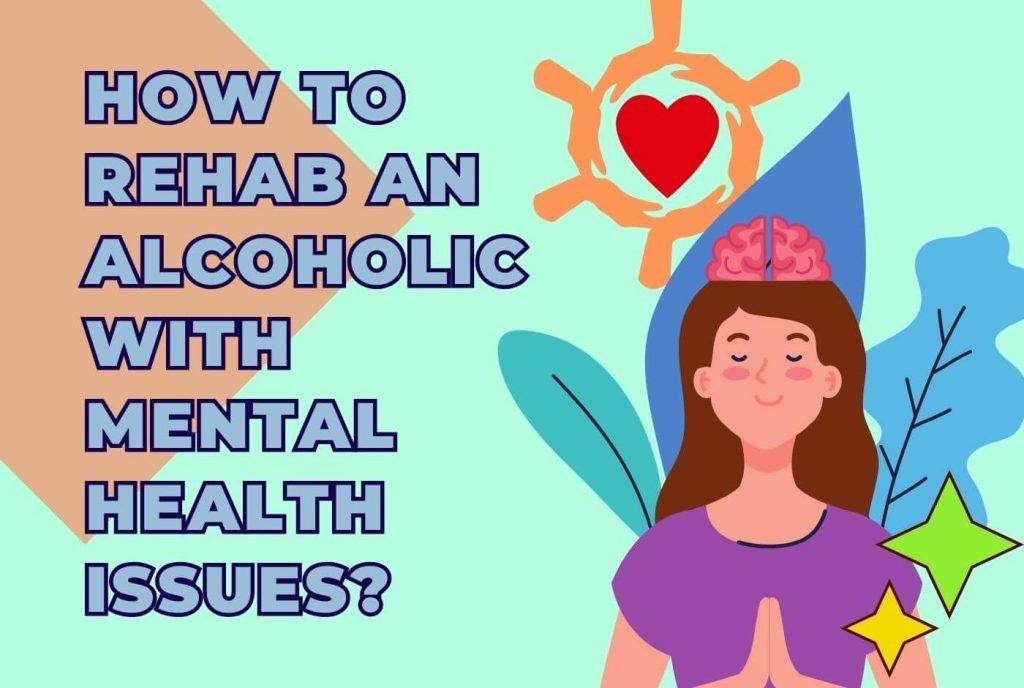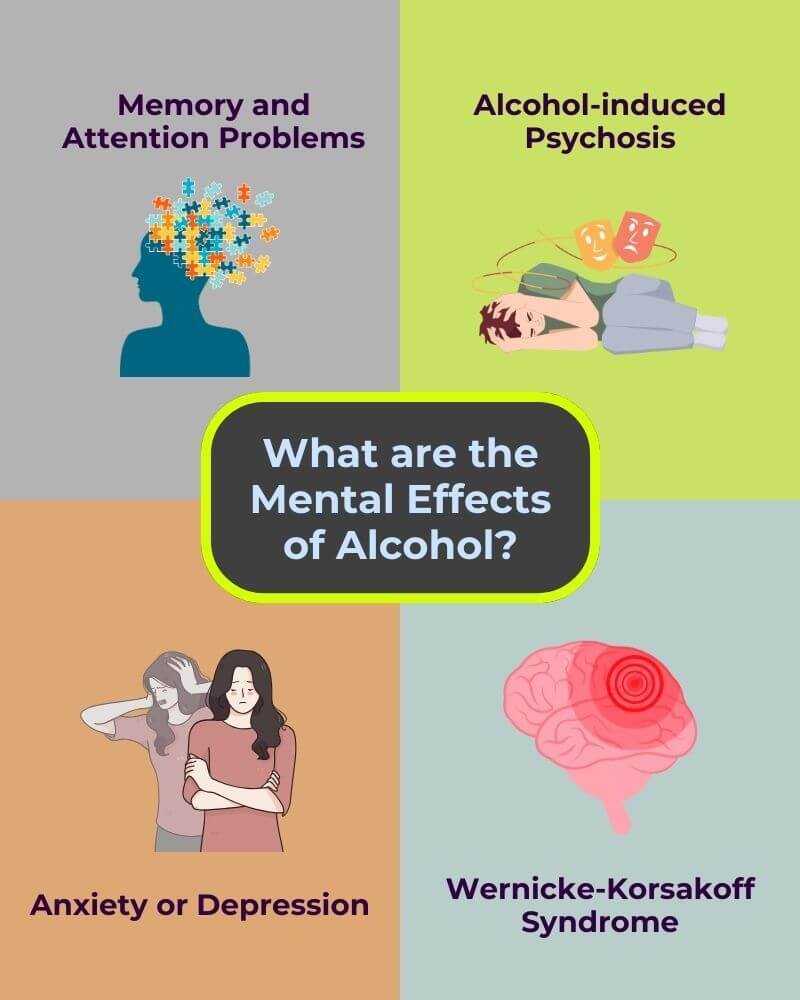Dealing with the complicated relationship between alcoholism and mental health is hard for people who want to get better. Because these two things affect each other, it can make it harder to get better, which is a cycle that needs a nuanced approach. Statistics reveal that more than half (55%) of the over 72,000 people who went to alcohol treatment last year said they needed help with their mental health. For many individuals struggling with alcoholism and mental health issues, finding the right support and treatment can be a challenge. This is especially true for those with co-occurring conditions, such as depression and alcohol dependence. In some cases, specialized programs, such as dementia patient alcohol rehab, may be necessary to address the unique needs of individuals with both alcoholism and mental health disorders. It’s crucial for individuals to seek comprehensive treatment that addresses both their alcohol dependence and mental health in a holistic manner. Finding the right support for individuals struggling with alcoholism and mental health disorders involves understanding the complexities of their unique situation. This may involve exploring dual diagnosis treatment options that address both conditions simultaneously. It’s important for friends and family members to educate themselves on how to support an alcoholic in their journey towards recovery, while also understanding the challenges they may face with their mental health. Additionally, seeking professional guidance and resources on how to support an alcoholic can also be beneficial for both the individual struggling and their loved ones.
My nana has been a mental health patient with alcohol problems for years. My experience says that it is important to know how alcoholism and mental health problems affect each other in order to make effective recovery plans.

Let’s explore our blog to learn about proper ways to deal with an alcoholic with mental health issues and how to cope with the consequences. Let’s get started!
Learning about Dual Diagnosis
People who have both a substance use problem (like alcoholism) and a mental health disorder are said to have a dual diagnosis. It can be tough to spot someone with a dual illness. Differentiating between a mental illness and a drug or alcohol problem takes time.
Cognitive behavioral therapy (CBT), which focuses on changing thought patterns and behaviors, and dialectical behavioral therapy (DBT), which focuses on controlling emotions and social skills, are two popular types of therapy used to treat people with dual diagnoses.
Individual and group therapy, which is part of holistic treatments, creates a more complete healing environment that takes into account how addiction and mental health are closely connected for a more effective and long-lasting recovery.
Plus, the signs and symptoms change based on the mental health issue and the substance being overused, like prescription drugs, alcohol, or illegal drugs. Depression and weed abuse, for instance, may show up very differently than schizophrenia and alcohol abuse.
If your answer is yes for each of the following questions, you may need a dual diagnosis:
- Does drinking or drugs help you cope with bad memories or sensations, control pain or moods, face frightful situations, or focus on tasks?
- Do you think substance use affects mental health? Do you feel depressed after drinking? Or drink while stressed or remembering bad things?
- Did a family member struggle with mental illness or alcohol or drug abuse?
- Even sober, do you feel melancholy, worried, or off balance?
- Have you received addiction or mental health treatment?
- Did mental health issues lead to substance abuse treatment failure, or vice versa?
Relation between Alcohol and Mental Health Issues
Drinking alcohol and mental health are closely linked, and they often affect and make each other worse in a complicated way. For example, as my mother observed my nana for a long time, she suggested that one problem doesn’t always have to cause the other.
Problems with anxiety and sadness may get worse when people abuse alcohol. The following should also be thought about:
Alcohol-Induced Mental Health Issues
Alcohol abuse can cause mental illness. Long-term alcohol misuse worsens depression and anxiety. Alcohol depresses the central nervous system, increasing the risk of clinical depression. As alcohol affects neurotransmitters, anxiety disorders may worsen.
Cognitive Psychosis
Alcohol has a huge effect on thinking. Cognitive impairment, which makes it hard to remember things, pay attention, and make decisions, is a common result. Abusing alcohol can lead to problems that can’t be fixed, such as Wernicke-Korsakoff syndrome. Psychosis caused by alcohol, which includes hallucinations and illusions, makes mental health more difficult.
Dual Diagnosis Complexity
Having both an alcohol problem and a mental health problem makes recovery more difficult. When someone has a dual diagnosis, they need specialized care that takes care of both issues at the same time. Self-medication and underlying mental health problems must be sorted out before healing can happen.
What if Mental Issues Are Already There?
Small amounts of alcohol can make you feel good, but too much can change your mood and make you angry or worried. Psychiatric signs depend on whether someone is dependent or not. Heavy drinking can put stress on the brain, which can make problems like depression, anxiety, and sadness worse.
Although it can be difficult to tell the difference between disorders brought on by alcohol and disorders that develop on their own, treating alcoholism typically improves psychiatric issues.
How to Rehab an Alcoholic with Mental Health Issues
A comprehensive method is needed to help people who are recovering from both alcoholism and mental health problems. My colleague, Abby, is having a hard time with alcoholism, which is making her worry worse. Abby’s story shows how important it is to use personalized plans for simultaneous healing.
Detoxification is the first!
To deal with a physical dependence on booze, detoxification is the first step. Medically supervised detox makes sure that the withdrawal process is safe and takes care of any problems that might come up.
Evaluate the mental state
A full evaluation of the person’s mental state is necessary. Finding the causes of mental health problems is the first step in providing targeted care.
Decide on treatment options (i.e. inpatient/outpatient)
Choose between hospital and outpatient programmes based on the person’s mental health needs and how bad their addiction is.
Therapies are remarkable!
Cognitive behavioral therapy (CBT) and other therapies based on evidence should be used together to fix faulty thought processes and encourage behavior change.
Seek Support from loved ones
Get a lot of help by involving family and friends in your recovery. Their support builds a sense of community and responsibility.
Embrace a Healthy Lifestyle
People should be encouraged to live healthier lives to improve their general health. Holistic recovery includes things like exercise, good nutrition, and tasks that help you be more mindful.
What are the Mental Effects of Alcohol?

The effects of alcohol on mental health are deep and complex. It changes both short-term and long-term brain function.
Memory and Attention Problems
Drinking too much alcohol over a long period of time hurts your brain, which can cause you to forget things and have trouble paying attention. For example, people may find it hard to remember recent events or focus on their work.
Alcohol-induced Psychosis
Abusing alcohol for a long time can lead to psychotic episodes with hallucinations and delusions. These expressions make it very hard for people to see reality as it really is.
Anxiety or Depression
Alcohol makes you feel down, and drinking too much of it can make mental health problems worse or cause them to start. For instance, someone who is prone to worry might feel their symptoms get worse after drinking.
Wernicke-Korsakoff Syndrome
This disease is a severe effect of long-term alcohol abuse; it causes severe memory loss and cognitive impairment. One example is having trouble remembering recent events because of damage to certain parts of the brain.
Which Mental Health Issues are Most Common in an Alcoholic?
A wide range of mental health problems are linked to alcoholism, making things harder for those who are struggling. Let’s take a look through the most common mental health issues in an alcoholic-
Depression
Abusing alcohol and being depressed often go hand in hand, making the connection a cycle. The numbing affects of alcohol might help for a short time, but long-term use can make depressive symptoms worse, making it harder to deal with having a dual diagnosis.
Anxiety
Chronic alcohol abuse makes people more likely to develop anxiety conditions. The way alcohol affects nerves makes people feel more uneasy, which can cause anxiety in people who don’t already have it.
Psychosis
Alcohol-related psychosis is a serious form that includes hallucinations and false beliefs. People may lose touch with reality, have skewed views, and increased paranoia.
Suicide/Self-harm
It is scary that there is a link between drinking and suicidal thoughts or hurting oneself. Too much drinking makes depressed, angry, and hopeless feelings stronger, which increases the risk of hurting yourself or having suicidal ideas.
Eating disorder
Eating problems and alcoholism often go hand in hand. When someone is drunk, their judgement and inhibitions are clouded, which can make eating disorders worse. This can cause a dangerous chain of events.
Personality disorder
People who are dealing with alcoholism may show signs of a personality disorder, which makes diagnosis and treatment more difficult. Abusing alcohol can hide or make personality disorder symptoms worse, so it takes a complex method to deal with both issues in a healthy way.
People Also Asked
Which substances can affect my mental health?
Various chemicals affect mental health. Alcohol can cause sadness and anxiety, and cocaine and methamphetamine can cause psychosis. Misuse of prescription drugs can cause mental health difficulties. Be mindful of how different substances can affect your mental health, and seek professional treatment if you experience side effects.
Does self-help work in the case of dual diagnosis?
Mindfulness and stress management can supplement professional treatment, but dual diagnosis usually requires a comprehensive strategy. Therapy and medication management are essential for managing substance use and mental health issues. Dual-diagnosis patients are more likely to recover with medical support and evidence-based therapy.
It takes time to get better after having a dual diagnosis. Recovering takes time, and people often slip back into old habits. You and your loved one need to keep getting help as you work to get better, but you can get through this hard time together and take back control of your lives.
- What to Pack for 30-Day Rehab? FREE Checklist - May 30, 2024
- Types of Outpatient Rehab: Difference One Should Know - March 28, 2024
- Truth Behind FMLA: Hidden Hurdles of Alcohol Rehab Leave - March 28, 2024